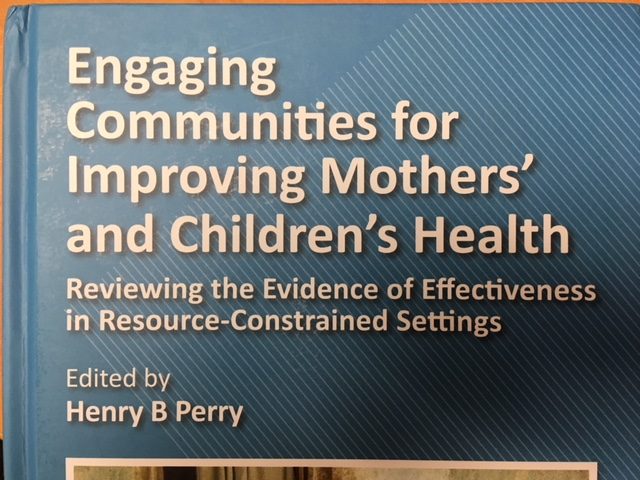When I studied international and community health at Johns Hopkins in 1977, primary health care was a new emphasis. Our dean, Dr. Carl Taylor led a department full of passion about reducing illness and promoting health through primary care. But the amount of data about this approach was limited. Like many others, I found that the dream was charming, but not so easily implemented when I went to Ethiopia.
So I was encouraged to hear that now there are over 700 studies in the medical literature which support community based primary health care. Dr. Henry Perry and others at Johns Hopkins have published their findings in the Journal of Global Health here.
The evidence supports CBPHC as an important component of a comprehensively-designed maternal and child health program, not just for the direct effects on maternal and child morbidity and mortality, but because of its contribution to appropriate usage of hospital and clinic facilities. In other words, we need a balance of curative, preventative and promotive. The evidence is clear.
Here are some aspects of CBPHC:
- Engagement of women’s groups
- Innovation like puppet shows
- Paid and unpaid local workers and volunteers
- Strengthening the staff of peripheral health centers
- Using both medical professionals and non-professionals in complementary ways
- Regular home visits
- Community based case management
- Mobile teams
Dr. Perry points out that belief in curative medicine is very powerful; sometimes we are mesmerized by technology and curative care. While they have a very important place, we also know that a large percentage of illness can be mitigated, prevented or treated by non-medical means. We want to embrace good clinical care, of course, but balance this with sustained and intentional efforts to impact communities in broader, more ‘non-technical’ ways. CBPHC may not be technologically sophisticated, yet it can be powerful.
In terms of social justice, Perry points out the CBPHC can have a ‘pro-equity’ effect, avoiding the potential barriers to health care that institutions by themselves can have.
As we make disciples in our healthcare missions, let us remember to raise up both medical professionals and non-professionals, staff who work in institutions as well as those who work in communities. With needs pressing in around us, we must keep hospitals functioning well yet not consume all of our resources on them — but balance clinical care (tertiary and secondary care) with community based primary health care. We need not only doctors, but social workers, health promoters, and grandmothers who are willing to make the sacrifice to love and invest in communities in order to bring healing to the brokenhearted and hope to those suffering around us.
If we are outsiders to a culture (expats or missionaries) we shouldn’t be naive about the difficulty of such an approach. It often touches on deeply held values, dreams, and cultural approaches which are distorted by our own rebellion from God and the ways of His kingdom. But as we love individuals and learn to serve side-by-side in humility with local people, we can discover how great is our Lord Jesus and enable many to find fullness of life in Him.


Leave a Reply